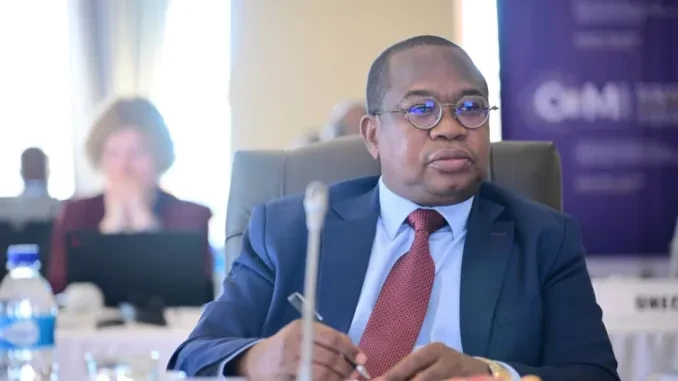
United States President Barack Obama was being pushed in Syria recently, by circumstances, to a war he didn’t want. I suspect he is driven to sanctions on Zimbabwe by similar circumstances, some of which are of Zimbabwe’s own making, such as not inviting independent and fair-minded Western institutions like the US’s Carter Centre and Germany’s Frederick Neumann Foundation to monitor elections.
Painona withwith Tapiwa Nyandoro
Syria came close to being annihilated by cruise missiles after being accused of using chemical weapons against civilians in its civil war. The Russians suspected foul play.
Syria’s Bashar al-Assad would have had to be a fool to cross, needlessly, America’s redline. The Russian Foreign Secretary challenged his American counterpart for evidence.
He went further and proposed a solution that has been welcomed by all people of goodwill internationally. The Syrians have not disappointed. They hailed Russian diplomacy and promised to comply with the Russian plan. That is constructive engagement. It produces win-win-win outcomes. The civil war in Syria is not over, but progress has been made.
Zimbabwe has a less acute situation than the one obtaining in Syria. Ours is chronic, involving as it does, Western sanctions slowly strangling the already weak economy. Unless urgent diplomatic steps are taken, Zanu-PF’s victory may thus prove pyrrhic.
“MDC-T’s refusal to concede (defeat) continues to give Westerners the excuse they need to maintain their illegal sanctions regimes, the same way the party’s claims of human rights abuses and closure of democratic space provided cover for the impositions of sanctions”, thundered a pained recent editorial in the country’s leading daily. Well, the time has come to call the MDC-T’s bluff. The President probably partly delayed naming his Cabinet because of the issue of sanctions. His personalised attack on the leader of the MDC-T after the elections gave away His Excellency’s exasperation with the MDC-T’s failure to concede. The nation needs to march forward and it cannot do so while shackled by sanctions.
“We just have to live with sanctions”, some say. Why should we, when we have committed no wrong?
- Chamisa under fire over US$120K donation
- Mavhunga puts DeMbare into Chibuku quarterfinals
- Pension funds bet on Cabora Bassa oilfields
- Councils defy govt fire tender directive
Keep Reading
Writing in the same weekly that carried the above-mentioned editorial extract Mai Jukwa wrote: “Zimbabwe’s dire economic situation is in need of radical policies, policies that work as part of a wider strategy to ignite rapid economic growth over the next five years”.
Mai Jukwa’s bold strategy involves harnessing China and the Far East’s momentum the way Dubai has done by scrapping tariffs and growing a regional shopping centre and cosmopolitan society.
But even the bold strategy can be constrained by sanctions, as the incoming Foreign Affairs deputy minister Chris Mutsvagwa’s interview in NewsDay eruditely revealed recently. The Chinese have to be mindful of America’s concerns, their biggest benefactor and trading partner.
Part of Zimbabweans’ expectations post the elections was the removal of sanctions by the Western powers. China, if it were to emulate Russia’s example in Syria’s argument with the US could help end the sanctions. Zanu-PF claims the elections were free, fair and credible. Of course we know that is not exactly true. It had a stranglehold on the State-owned Press and ZBC.
The later probably played a critical role in Zanu-PF’s victory. Its impartiality should be guaranteed going forward.
There are other more damaging allegations of subtle, but relentless voter coercion in the rural areas. They may well be false as the voting pattern did not change much from 2008 or from what Western pollsters predicted quite recently. The MDC-T may just have imploded on its own lack of merit or the limited charisma of its leader when compared to the demagogic Robert Mugabe.
Following Russia’s footsteps in the Syrian story, the stage is set for China, Zimbabwe’s all-weather friend, or for that matter its BRICS (Brazil, Russia, India, China and South Africa) grouping, Sadc and, or the African Union, to propose the following to the United Nations Security Council.
The 2013 elections be allowed to stand provided: lA full comparative forensic audit on the Zimbabwe elections, covering a year’s period from the inauguration of the President going backwards, involving at least two other Southern African countries’ most recent elections, is carried out.
- Sanctions are lifted in toto upon Zimbabwe signing on to the audits
- The findings of the audit would be used to strengthen Sadc election guidelines going forward
- Should rigging, or substantial voter coercion as alleged be established beyond reasonable doubt when compared to the other two African countries, then the UN would be mandated by the Security Council to finance, manage and run Zimbabwe’s 2018 elections, with Zanu PF politburo members being barred from participating in the 2018 UN-supervised elections.
- Should, on the other hand, the MDC-T’s allegations, outside the Sadc and AU election supervision reports not be proven, then those in its party’s national executive council should be barred from the 2018, Zimbabwe Electoral Commission run elections.
Zimbabwe’s own Catholic Commission for Justice and Peace (CCJP) supported by the Carter Centre in the US, and other technical and financial partners from the UN, Japan and Germany could be trusted with conducting the three audits.
Although I think otherwise, Zimbabwe need not be held to higher standards, than say, Angola, Rwanda or Uganda, where the West is doing roaring business in rather suspicious circumstances. China too, must join the US in raising the bar on public governance the world over, not least in its own country. Its economic influence in the world now demands a more visible constructive presence on the world arena.











